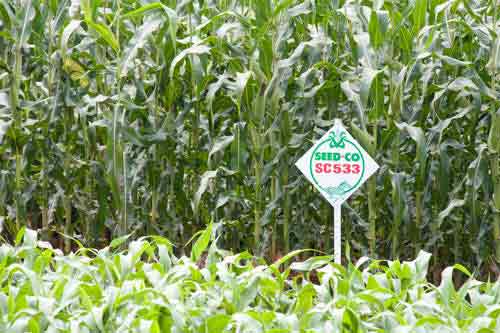SeedCo reported a profit before tax that was fairly flat at US$5.14million (approximately P52 million) , a slight reduction from the prior year’s US$5.27million. The margins were at the lower end of the company’s expected range of 50-55 percent at 50 percent as a direct result of declined revenue. The revenue performance declined by US$4.24million, of which translated to a 6.6 percent decline. The company has accrued the subdued figures in the period to muted demand in East Africa. Operations in Kenya and Tanzania were suppressed due to the severe drought that hit the region.
Overheads were affected by the implementation of International Financial Reporting Standards 9 (IFRS9), which hiked impairment charges to US$1.7million. This is expected to normalize going forward as the reporting standards have been fully absorbed. The company has exposure to two governments, namely Zimbabwe and Zambia. This exposure was the main reason for the 11 percent increase in trade and other receivables. The Group has noted that the exposure is worth around US$11million with the greatest exposure inclined to Zambia at US$7million.
With continued engagements with the governments, the company has expressed that the delayed settlements will be sorted. The drought experienced by the various nations of which the country operates resulted in a 35 percent increase in inventory for the group. The CEO, was adamant that the increase will have a positive play in the Group’s operations as all the major markets are now well supplied into the new season. SeedCo faced a number of challenges in the period which include the already mentioned drought conditions that dampened demand for the company’s product. Rain in its various markets came well after the reported season.
There were several political disruptions experienced in a number of Seed Co’s markets including Nigeria, DRC and Malawi where presidential elections were at the forefront. Other challenges include the temporary ban of grain exports that was imposed by the Zambian Government, the difficult competitive environment more especially geared towards OPV (OpenPollinated Variety) seeds in Malawi which are generally cheaper alternative to hybrid seeds. Despite the various challenges, there is a positive outlook for the company. Nigeria is expected to start contributing positively to the revenue, following the small profit earned for the year.
The new acquisition, Alliance Seeds (which develops hybrid vegetable seeds) is expected to also contribute positively for the company. The drought sentiments have improved significantly following the unexpected East Africa drought. To combat the drought issue, the company is also in the process of producing early maturing variety seeds.

